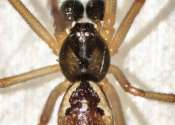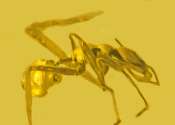Invasive brown widow spiders found to host novel bacteria related to chlamydia
Invasive brown widow spiders across three continents were highly infected with a single strain of Rhabdochlamydia, a bacterium that is related to major pathogens of humans and animals, including chlamydia. A bite from these ...









